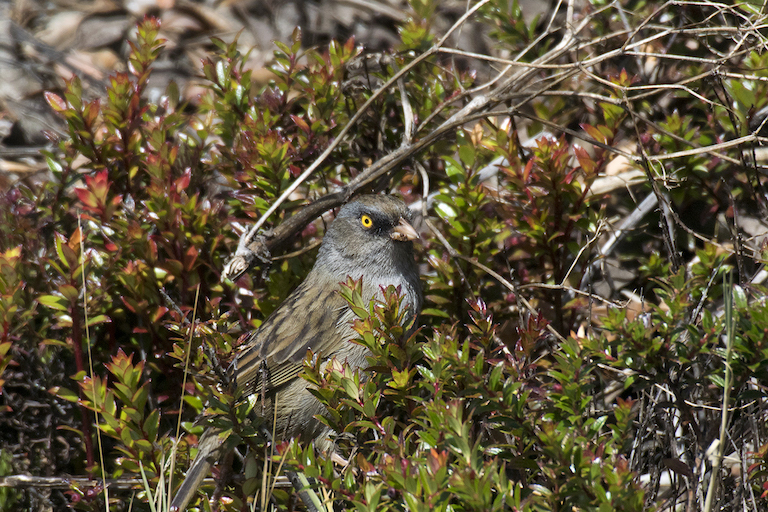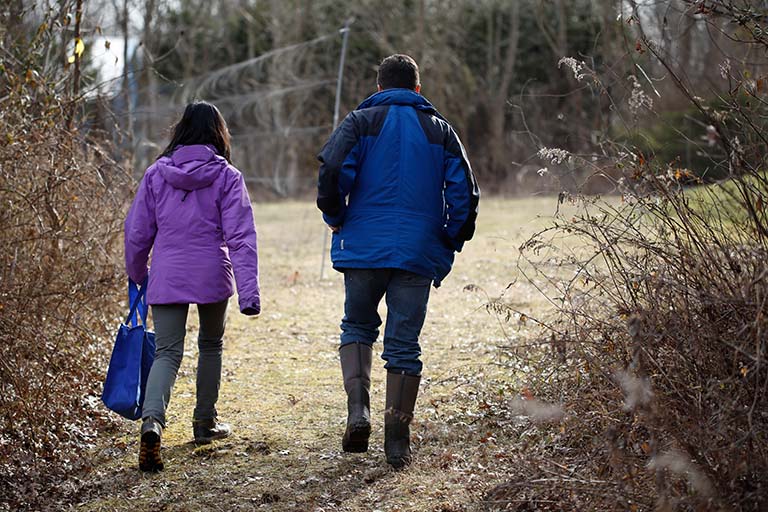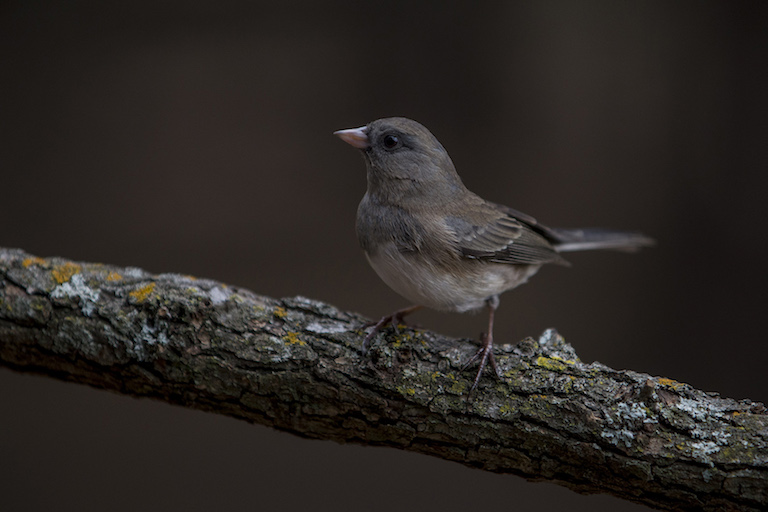Lab
Biology Bldg. 149
Ketterson Lab website
Research
We take an experimental approach to life-history evolution that we call ’phenotypic engineering.’ By treating birds with hormones, documenting the phenotypic consequences of hormonal treatment, and relating these consequences to fitness, we hope to understand how natural selection shapes organisms as integrated units. Our study animal is the dark-eyed junco, and we have found that testosterone affects numerous aspects of the male phenotype in free-living juncos, including song, parental behavior, home range size, attractiveness to females, immune capacity, corticosteroid responses to stress, regulation of body mass, and timing of molt, to name a few. With respect to fitness, males treated with testosterone are less successful at rearing offspring with their social mates but more successful at siring offspring by means of extra-pair fertilizations. Our current goals include investigation of the extended phenotypic effects of testosterone on a male’s associates, including his mate and offspring. We are also investigating constraints on testosterone, including correlated responses in females and effects of testosterone on males during the non-breeding season.
Our studies of migration have focused on factors that promote site fidelity, the role of experience in regulating onset and termination of migration, and the relative importance of a series of selective factors in shaping the distance an individual migrates. These factors include dominance status in winter, arrival time at breeding areas in spring, risk of mortality during migration, and physiological adaptations (such as fattening) for coping with unpredictable environments.
Current and recent graduate students have studied the role of maternal steroids in early development in red-winged blackbirds, European starlings, and dark-eyed juncos; seasonal profiles of testosterone and prolactin in red-eyed vireos and solitary vireos; the influence of testosterone on the pre-basic molt in dark-eyed juncos, mate choice across subspecific boundaries in dark-eyed juncos; genetics of variation in sexually selected traits in orioles; transmission of passive immunity in Japanese quail and pied flycatchers, ageing and the stress response in common terns, correlational selection on body size and an attractive plumage trait in dark-eyed juncos, testosterone, aggression, nest defence, and immune function in female dark-eyed juncos, hormonal correlates of dominance in female dark-eyed juncos, variation among female dark-eyed juncos in extra-pair fertilizations, hormones and social behavior in the phainopepla, regulation of seasonal reproduction by novel peptides in dark-eyed juncos.
Research areas
Behavior
Ecology
Evolution
Genomics and Bioinformatics





 The College of Arts
The College of Arts